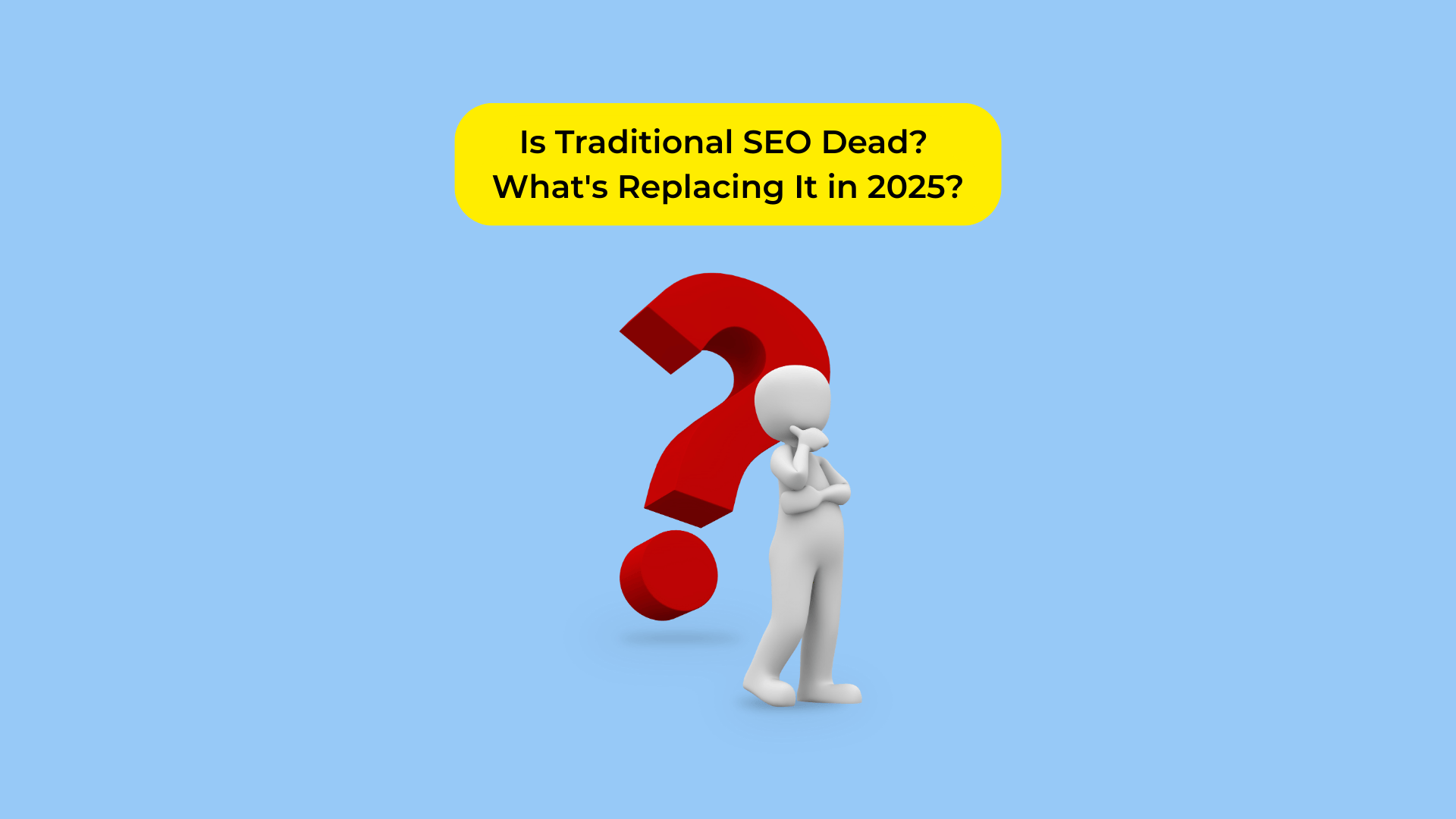Search Engine Optimization (SEO) has long been the foundation of digital visibility. But as we move deeper into 2025, the game’s rules are shifting rapidly, bringing us to the question: Is traditional SEO dead?
The honest answer? It’s not dead, but it’s certainly evolving. The era of keyword stuffing, directory submissions, and thin blog posts is long gone. What’s replacing traditional SEO is more innovative, more user-focused, and deeply integrated with AI and real-time data.
1. Search Intent Optimization is the New King
Google’s algorithms have matured to understand search intent, not just search terms. It’s no longer about matching keywords. It’s about solving the user’s problem.
- Old SEO: Keyword density, meta keyword tags.
- New SEO: Answering the “why” behind a search.
To stay ahead, businesses must align their content with users’ wants, not just what they type.
2. AI-Driven Content is Changing the Game
Tools powered by AI and machine learning are revolutionizing how content is planned, written, and optimized. Marketers now use platforms like Surfer SEO, Jasper, and ChatGPT to generate outlines, suggestions, and complete drafts.
But it’s not just about automating content. It’s about using AI to enhance creativity and relevance.
3. EEAT Takes Center Stage
Google’s emphasis on EEAT—Experience, Expertise, Authoritativeness, and Trustworthiness is a direct push toward quality over quantity.
If your content is written by experts, backed by credible data, and reflects real-life experience, it stands a much better chance of ranking well.
For instance, a case study by a local digital marketing agency in Guwahati that outlines real client results will carry far more weight than a generic how-to article.
4. Zero-click searches are dominating
In 2025, a growing number of searches will end without a click. That’s because users often find the answers they need directly in Google’s featured snippets, local packs, or knowledge panels.
To complete:
- Structure content with clear headers
- Use the FAQ sections
- Implement schema markup
This way, your brand visibility grows even if users don’t click.
5. Voice Search & Conversational Queries
With voice assistants like Siri, Alexa, and Google Assistant becoming the norm, search queries are becoming more conversational.
This means:
- Optimizing for natural language
- Focusing on question-based content
- Using long-tail keywords that reflect spoken language
Example:
Instead of targeting “best marketing agency in Assam,” think in terms like “What’s the best marketing agency in Assam for startups?”
6. Local SEO is Evolving with User Behavior
Local search is no longer just about claiming your Google Business Profile. It’s about building trust within your community and offering hyper-relevant content.
For businesses or service providers like a digital marketing agency in Guwahati, now is the ideal time to strengthen your focus on local SEO strategies.
That includes:
- Creating content around local events or neighborhoods
- Collecting and showcasing reviews
- Building regional backlinks and citations
7. User Experience is Now an SEO Metric
Google now considers user experience as part of its ranking algorithm. Page speed, mobile responsiveness, visual stability, and accessibility play key roles.
If your site loads slowly, looks messy on mobile, or has confusing navigation, it will hurt your SEO.
Conclusion
So, is traditional SEO dead? Not quite, but it’s been reborn. Today’s SEO is more competent, faster, and far more user-centric. To thrive in 2025 and beyond, marketers need to evolve from keyword chasers to experience creators.
Whether you’re a business owner, a content creator, or a marketing agency in Assam, embracing this shift is essential. The new SEO isn’t about tricking algorithms. It’s about serving people better than ever before.

